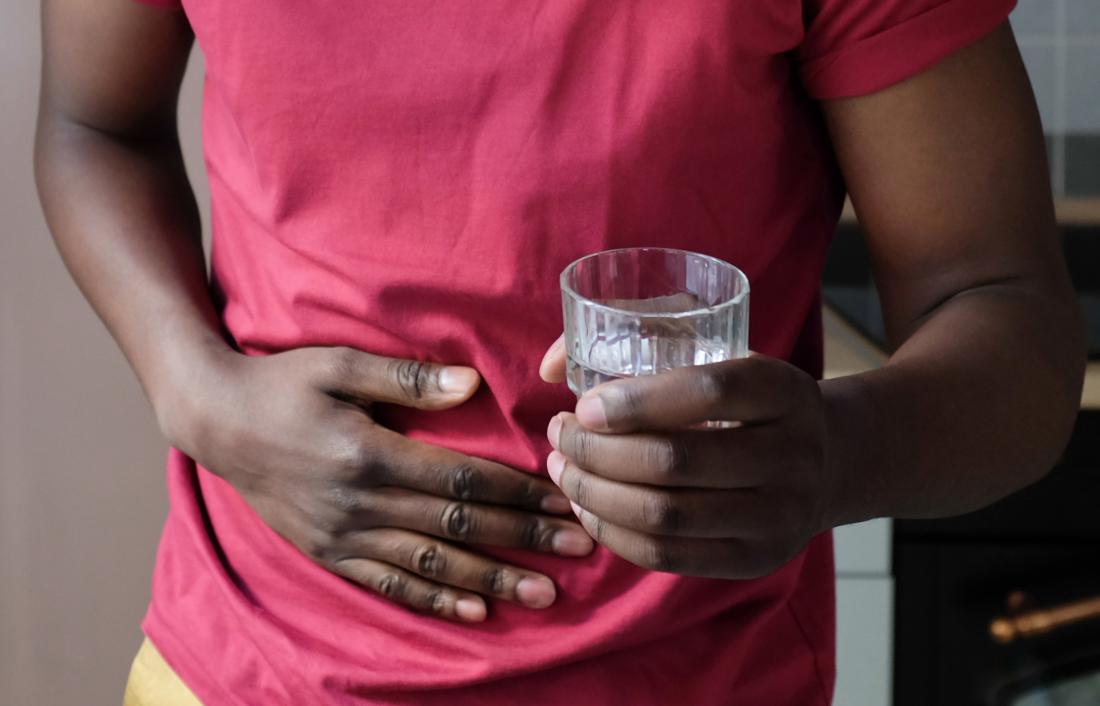Peptic Ulcer - A Brief Overview
Have you ever had that gnawing pain somewhere between your breast bone and your belly button? Sometimes worse when you eat, other times worse when you are hungry? So annoying right??

Well, you could have peptic ulcer, and you are most certainly not alone. According to Harvard Health Publishing, 1 in 10 people develop peptic ulcer at some point every year. So it is indeed common, and can affect all ages.
What is peptic ulcer?
Peptic ulcer, or ulcer as it is commonly referred to, is a break in the lining of the stomach wall.
Let's back it up a little bit to give you some context.
The stomach is a muscular sac that plays 3 key roles:
1. Serves as a storage for food eaten and releases this food in small bits into the small intestines.
2. Contract and relax to further breakdown the food and to mix the food with the secretions for digestion.
3. The stomach lining produces and secretes digestive enzymes into the stomach to begin the digestive process. As part of these secretions is a very strong gastric acid made up of hydrochloric acid.
What you have to understand is that, at a pH of 1-1.5, the stomach acid is a very strong and could dissolve metal.
This acid plays the important role of killing any pathogens that may have been transported into the stomach with the food, as well as help, further, break down the food that has been eaten.
The real question, though, is how come the stomach doesn't get dissolved by this strong acid that it produces?
There are protective measures in place to minimize the probability of this happening.
The stomach lining is protected by a layer of mucus impregnated with bicarbonate as well as prostaglandins that it secretes. This layer serves as a physical barrier and prevents direct contact of the acid with the stomach wall after secretion, while the bicarbonate, which is a base, neutralizes any acid that comes into contact.
With this background established, we can now discuss the 3 main mechanism of peptic ulcer formation.
1. Over production of gastric acid.
It doesn't matter how solid the protective mechanisms in place are, if the acid production overwhelms the protection, it will break through the defenses and cause damage to the stomach lining.
Causes of increased acid production include, but not limited to;
- Tumours example Zollinger-Ellison Syndrome
- Some drugs
- Stress, especially emotional stress
- In rare cases, chronic kidney failure
2. Inadequate protective layer due to removal by certain drugs or practices, or inadequate production of mucus or bicarbonate and prostaglandins.
NSAIDs are the biggest culprits here. NSAIDs or Non steroidal antiinflamatory drugs, are common drugs that are used for their antiinflamatory and pain relieving properties, but they also have the side effect of interfering with the stomachs ability to produce an effective acid protection layer. Even though many people who take NSAIDs will not have an issue, the number who do are significant enough to make this a very key question to ask before prescribing an NSAIDs. The major challenge with NSAIDs is that, most are available over the counter, and risk of abuse is high, making it a leading contributor to the significant number of persons developing peptic ulcers annually. Examples of NSAIDs include ibuprofen (Brufen), Aspirin and diclofenac. Persons who have a history of ulcers should be cautious when taking any of these drugs.
Culturally, some people also have a habit of ingesting mucolytic agents with the aim of purging themselves. Mucolytics are agents that breakdown mucus. As already established, the mucus layer of the stomach serves a purpose and its breakdown and expulsion should not be encouraged, for obvious reasons.
3. Breakdown of the protection layer.
This is indeed the most common cause of ulcers and the culprit here is the Helicobacter Pylori, or H. Pylori, a bacteria.
H. Pylori is a normal flora, living in the mucus lining of the stomach. It is mostly acquired in the first few years of life, and will not cause significant problems for most people, however, under certain conditions, it begins to proliferate and cause damage to the very lining that serves as it's home. With the lining damaged, there is no protection of the stomach tissues from the damaging effects of gastric acid. An ulcer inevitably occurs.
What are the symptoms of Peptic Ulcer
The symptoms of the ulcer depends on its location, but it is important to note that many people with ulcers don't show any symptoms. There are 2 kinds of peptic ulcers, a gastric ulcer and a duodenal ulcer.
A gastric ulcer is located in the stomach itself, while a duodenal ulcer is located in the duodenum which is the first part of the small intestines.
Classically the pain of gastric ulcer is relieved by food. This is because food would dilute the acid and therefore reduce the irritation of the ulcer. On the other hand, the pain of a duodenal ulcer is aggravated by food because as the stomach begins to release food mixed with acid into the duodenum irritation of that ulcer increases. Unfortunately, the pain of ulcer is not as classic as described above.
Other symptoms of ulcer include
- bloating
- frequent burping
- nausea
- unintentional weightloss
As the ulcer progresses, the may include
- severe abdominal pain that may wake you from sleep
- bloody or black tarry (gummy) stools
- bloody vomit
These symptoms require an immediate visit to your doctor.
The most feared complication of a peptic ulcer, particularly a duodenal ulcer, is perforation. As the ulcer continues to eat away the lining of the duodenum, it could open up a channel between the lumen of the duodenum and the abdominal cavity, resulting in stomach content being poured into the cavity. This is excruciatingly painful, and fatal if not dealt with as an emergency. Treatment of this perforation will require emergency life saving surgery.
In conclusion, if you think you have an ulcer, don't 'wait and see'. You have to be proactive about your health. Seek help from a qualified professional immediately.


Comments
Post a Comment